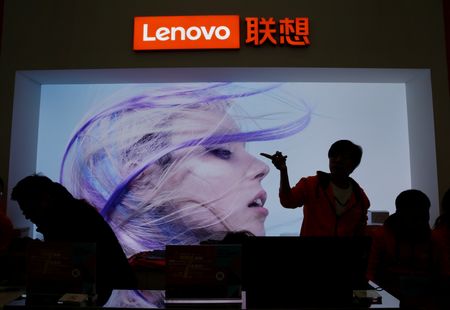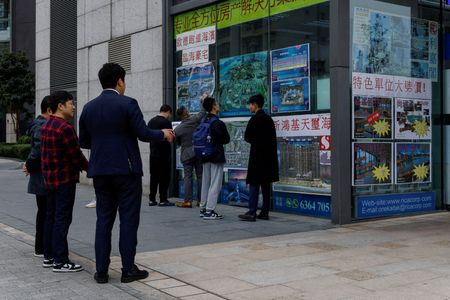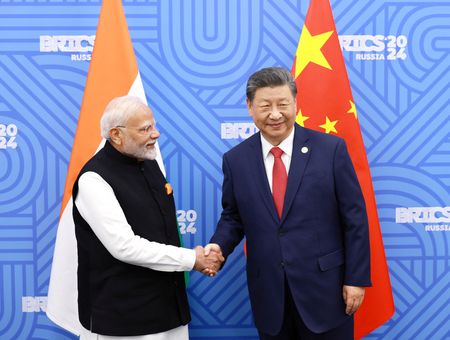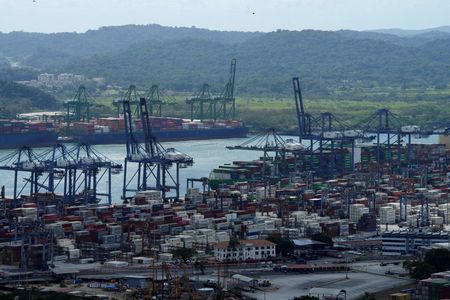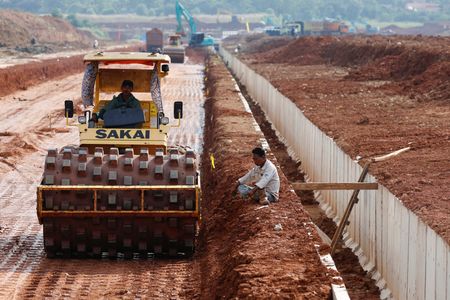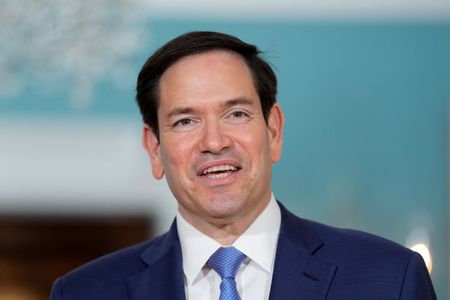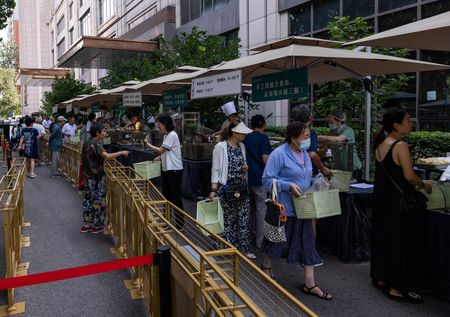By Che Pan and Brenda Goh
BEIJING (Reuters) -China’s Lenovo said on Thursday the tariff pause between Washington and Beijing was positive and growth in China’s AI infrastructure remained strong despite U.S.-China tech tensions.
“The truce is a positive situation,” said Lenovo’s CEO Yang Yuanqing in an interview with Reuters after the world’s largest maker of personal computers released its fiscal first-quarter results.
“We feel better than the previous quarter – it brings us more certainty rather than uncertainty.”
The U.S. and China have extended a tariff pause for another 90 days to November, averting triple-digit duties on each other’s goods and offering temporary relief to businesses on both sides.
Lenovo’s overall revenue for the three months ended June 30 climbed 22% year-on-year to $18.8 billion, exceeding analysts’ expectations of $17.4 billion, according to LSEG data.
Yang attributed the performance to strong AI demand in its three major business segments, each scoring double-digit growth in the first quarter.
Chinese exports to the U.S., including PCs, currently face a 30% levy, despite the tariff truce. Yang said the U.S. accounted for less than 20% of Lenovo’s total revenue, and that the tariffs on Chinese goods had not had much impact on its business so far due to its global manufacturing footprint.
Net profit attributable to shareholders more than doubled year-on-year to $505 million, well above the consensus estimate of $307.7 million.
AI PC accounted for more than 30% of all Lenovo PC shipments in the first quarter, according to Yang. Lenovo’s AI server business grew 150% in the first quarter on strong local demand.
“We see strong pipeline in AI servers,” Yang said.
China has recently advised major internet firms to exercise caution when purchasing Nvidia H20 chips and to consider domestic alternatives, after Trump approved the resumption of H20 chip sales to China.
Yang said China AI infrastructure had grown faster than the rest of the world and Lenovo, a Nvidia partner in China, has invested to diversify its supply-chain options amid the US-China dispute over semiconductors.
“Not only can we sell global products, we have invested a lot to develop the best local component products to meet customers’ different requirements,” Yang said.
Lenovo’s shares fell more than 3% in early trading on Thursday, against a 0.4% rise in the Hang Seng Index. However, the stock has climbed 15% over the past three months, outpacing gains in the benchmark.
(Reporting by Che Pan and Brenda Goh; Editing by Himani Sarkar, Kim Coghill, Sonali Paul and Kate Mayberry)

